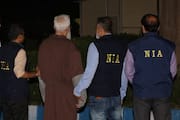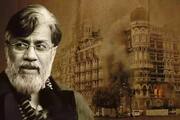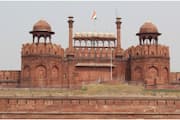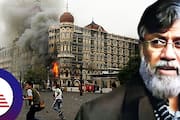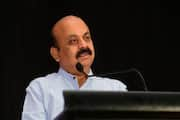From Bangkok to Bodh Gaya: How PM Modi is weaving Buddhism into India's foreign policy
PM Modi's Thailand visit and temple tour reflect his long-standing vision of using Buddhism as a bridge for global peace and diplomacy, placing India as a spiritual anchor in Asia and beyond.
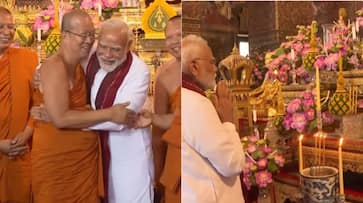
Prime Minister Narendra Modi visited Thailand's conic Wat Pho Temple, home to the Reclining Buddha. His journey underscores a decade-long commitment to making Buddhism a cornerstone of India’s cultural diplomacy and foreign policy.
PM's visit follows a consistent pattern in PM Modi’s overseas engagements: using shared spiritual heritage to deepen diplomatic ties. The Prime Minister is also scheduled to visit the Mahabodhi Temple in Anuradhapura, Sri Lanka, reaffirming India's deep-rooted civilizational links with its Buddhist neighbors.
Since taking office in 2014, PM Modi has steadily built a diplomatic narrative around Buddhism, positioning India not just as the birthplace of the religion but as its modern-day steward.
A decade of spiritual diplomacy
In 2014, during his visit to Japan, Modi toured Kyoto’s Toji and Kinkaku-ji temples and met with the Kyoto Buddhist Association. This early gesture was a clear indication of his intent to engage Buddhist nations through shared heritage.
The following year, 2015, saw a major push. In China, he visited the Da Xingshan Temple and Big Wild Goose Pagoda in Xi’an, emphasizing historical Buddhist exchanges. In Mongolia, he visited the Gandan Monastery, and in Sri Lanka, he paid homage to the Sri Maha Bodhi Tree—each stop highlighting India’s sacred connection to the broader Buddhist world.
In 2016, Modi’s visit to the Quan Su Pagoda in Vietnam reinforced ties with Southeast Asia’s Buddhist communities, and in 2017, he addressed the International Vesak Day celebrations in Colombo, visiting Sri Lanka’s revered Gangaramaya Temple.
In 2018, he toured the Buddha Tooth Relic Temple in Singapore, while 2019 saw the unveiling of a statue of Lord Buddha and his disciples in Mongolia’s Gandan Tegchenling Monastery, in collaboration with then-President Khaltmaagiin Battulga.
PM Modi’s outreach grew even more structured in the last few years. In 2022, he visited Lumbini in Nepal on Buddha Purnima and laid the foundation stone for the India International Centre for Buddhist Culture and Heritage. In the same year, India sent the Kapilavastu Relics—four Holy Relics of Lord Buddha—to Mongolia for public exposition during Buddha Purnima, accompanied by a 25-member delegation.
In 2023, he hosted Japanese PM Fumio Kishida at Delhi’s Buddha Jayanti Park to visit the Bal Bodhi Tree. India also hosted the inaugural Global Buddhist Summit, where Modi emphasized that Buddha’s teachings are essential to solving contemporary global challenges.
The momentum continued in 2024. At the India-ASEAN Summit, Modi presented a vintage brass Buddha statue to Laos President Thongloun Sisoulith, symbolizing the spiritual ties between the two nations. That same year, sacred relics of Lord Buddha and his disciples Arahant Sariputta and Arahant Maha Moggallana were sent to Thailand for public display in four cities over 25 days, drawing huge crowds and reaffirming shared reverence.
Domestic commitment to Buddhist heritage
Back home, PM Modi’s government has matched international efforts with significant domestic initiatives. The Buddhist Circuit, tracing the life of Lord Buddha, has become a flagship project, complemented by the Mahaparinirvan Express—a dedicated tourist train offering a curated pilgrimage across India and Nepal.
The Kushinagar International Airport, operationalized under his tenure, now serves as a key entry point for international pilgrims. Additionally, the revival of Nalanda University and the recognition of Pali as a classical language further cement India’s role as a center for Buddhist education and heritage preservation.
A soft power strategy for peace
PM Modi’s consistent engagement with Buddhism reflects more than cultural curiosity—it is a deliberate soft power strategy. By promoting the universal values of peace, compassion, and harmony espoused by Lord Buddha, India is not only strengthening bilateral ties but also positioning itself as a moral and spiritual leader on the global stage.
After visiting Wat Pho in Thailand, Prime Minister Modi now prepares to step into the Mahabodhi Temple in Sri Lanka—marking not just another diplomatic stop, but the continuation of his vision to embed spiritual diplomacy at the heart of India’s global outreach.
 subscribe to Asianet Newsable WhatsApp channel by clicking here.
subscribe to Asianet Newsable WhatsApp channel by clicking here.